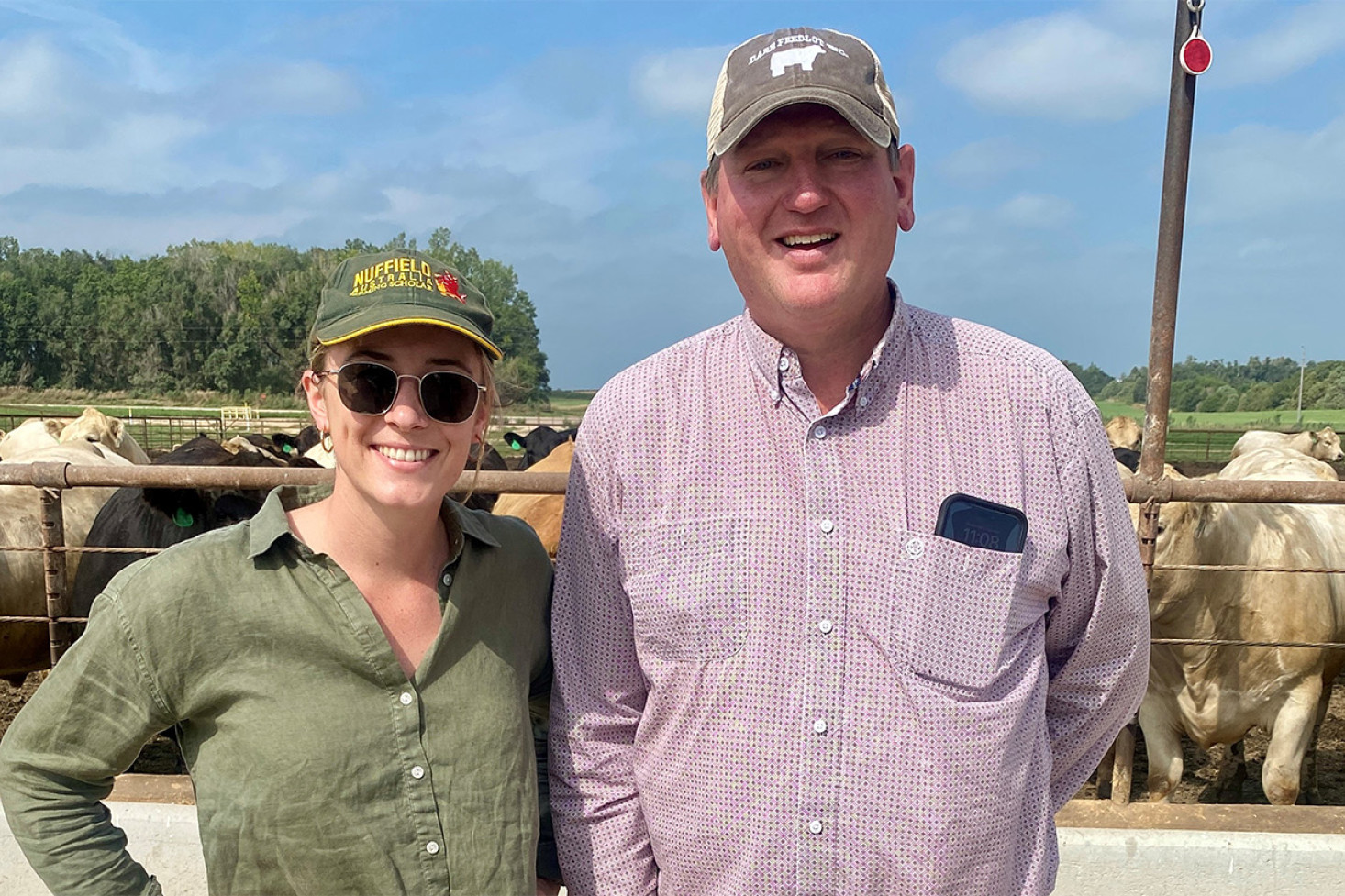Agricultural
21 October, 2024
Lessons from Nebraska: Rethinking Food Production for a Sustainable Future
After travelling through New Zealand and Canada, the third leg of Sally Higgins' Nuffield Global Focus Program took her to Nebraska, in the mid-west of the United States.

I took away three key learnings for how we can think about food production in Australia:
Educating consumers on the trade-offs for sustainable food production – Darr Feedlot, a sophisticated feedlot finishing up to 48,000 head annually, highlighted the trade-offs of using technology for efficient production, while adapting to consumer preferences.
The Operations Manager, John, described that hormone and growth technology has reduced water use by 30%, and feed inputs by 25%, and achieved a lifetime saving of $350 per beast finished.
However, the US beef market is demanding more grass-finished beef due to environmental and ethical concerns. John explained that sustainable food production requires trade-offs – using growth hormones presents some ethical considerations, but it also reduces the lifetime inputs required to finish an animal (i.e. requires fewer inputs such as land, water and feed, all of which contribute to an animal’s life-time emissions). John believes that agriculture has an important role to play in educating consumers on these trade-offs to help people understand the impacts of their food choices.
Opportunities for circular economy and community benefits from intensive farming systems –In Nebraska, many farms incorporate energy generation.
Tuls Dary’s Nebraskan site milks 11,000 cows, producing 125,000 litres daily. The animal effluent is a valuable biproduct and has two important purposes.
The cow manure is recycled to become a natural fertilizer, and the methane gas released from the fertilizer production process is turned into a natural biogas for energy use. This not only supports Tuls sustainability goals but is benefiting the broader community and farming industry.
Technology adoption to address labour costs and skills shortages – Broadacre corn and soya farmer, Bart Ruth, showed how technology is driving efficiency gains on large-scale farms.
Bart and his wife Lynne, farm 3,500 hectares of corn, soybeans, and wheat near Rising City. They spoke to us about how cropping farmers have struggled to find and retain skilled employees.
Bart has adopted modern cropping technology, such as precision agriculture, specifically variable rate technology and autonomous tractors to increase the efficiency of his operations and reducing his reliance on labour.
Nebraska showed us how intensive farming systems, when well designed and incorporated into a regional economy, can produce food efficiently while also delivering positive environmental and community impact.
- Sally Higgins


